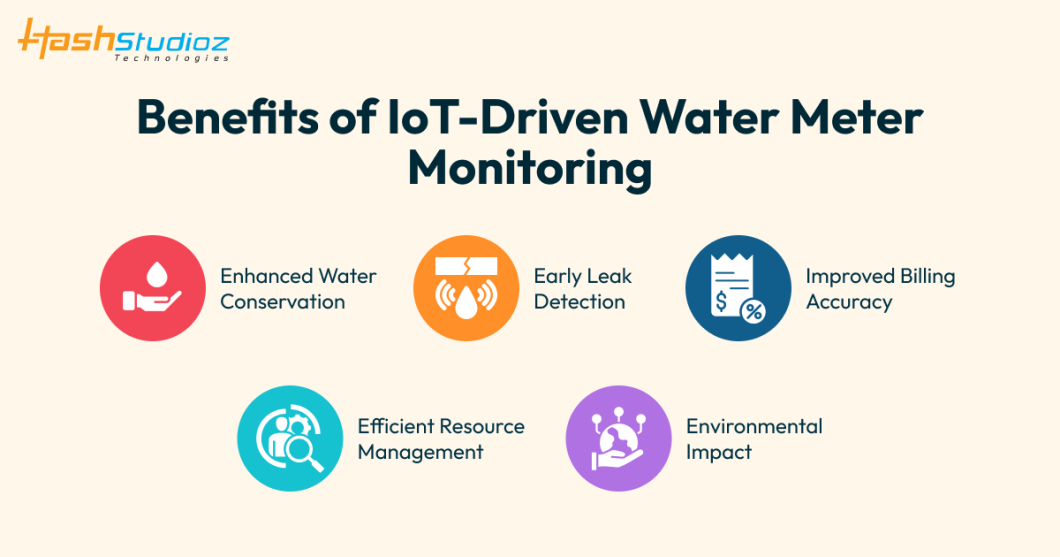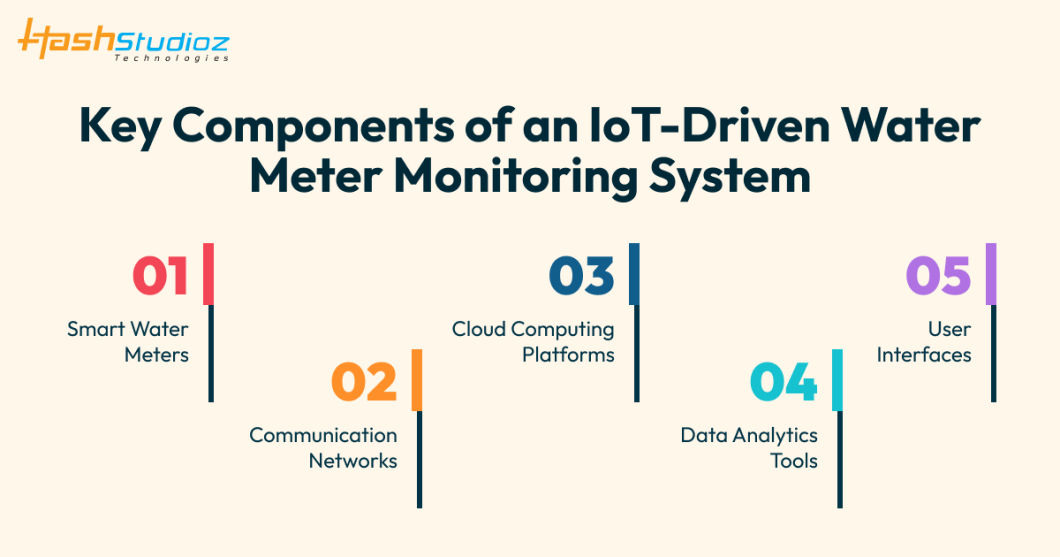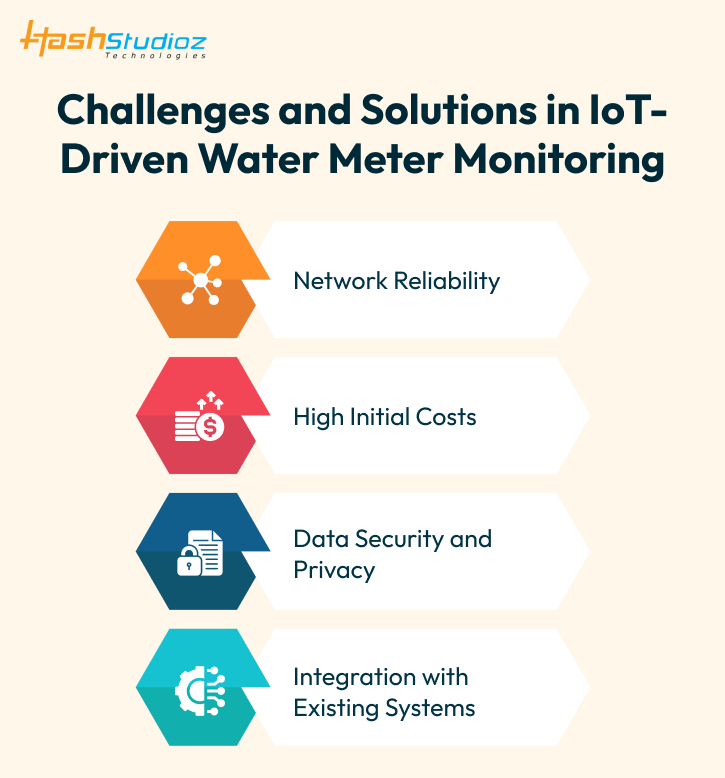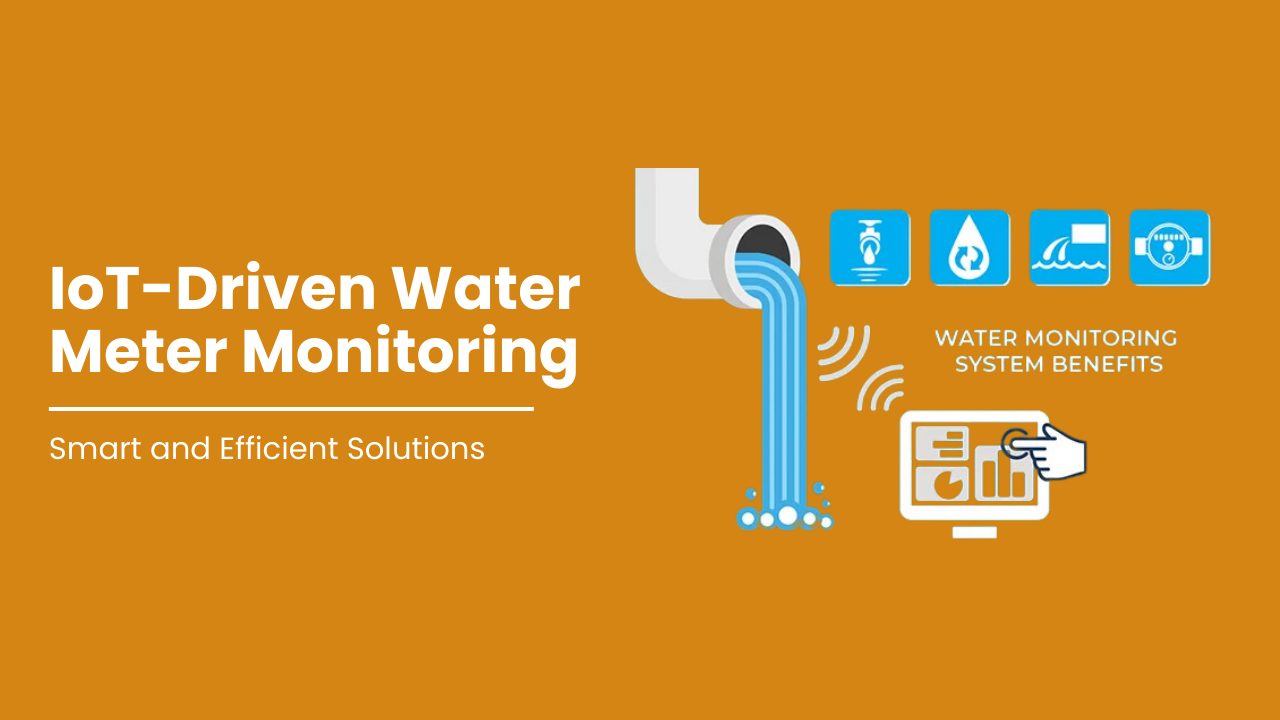The Internet of Things (IoT) is revolutionizing various industries, and water meter monitoring is no exception. As urbanization and population growth increase the demand for water, it becomes crucial to manage this vital resource efficiently. IoT-driven water meter monitoring offers smart and efficient solutions to address water management challenges. This article delves into how IoT is transforming water meter monitoring, the benefits it brings, and the future potential of this technology.
Here are some compelling statistics highlighting the benefits of IoT-driven water meter monitoring:
- Up to 30% Reduction in Water Loss: IoT-enabled water meters can detect leaks and inefficiencies in real time, helping to reduce water loss by up to 30% compared to traditional methods.
- 50% Faster Response Time: Automated alerts and data insights enable utilities to respond to issues such as leaks or malfunctions 50% faster than manual systems.
- 20% Improvement in Operational Efficiency: IoT water monitoring systems optimize water distribution and management, leading to a 20% improvement in overall operational efficiency.
- Savings of $200 Billion Annually: The global water sector could save up to $200 billion annually by implementing IoT technologies, due to reduced water waste and improved management.
- 95% Accurate Meter Readings: IoT-driven systems offer up to 95% accuracy in meter readings, minimizing errors and discrepancies common in manual or mechanical meters.
- Up to 40% Reduction in Operational Costs: Automated monitoring and data collection cut down on manual labor and maintenance costs, potentially reducing operational expenses by up to 40%.
- 70% Increased Customer Satisfaction: Real-time monitoring and accurate billing can lead to a 70% increase in customer satisfaction by providing more transparent and reliable services.
Table of Contents
- What is IoT-Driven Water Meter Monitoring?
- How Does IoT-Driven Water Meter Monitoring Work?
- Benefits of IoT-Driven Water Meter Monitoring
- Key Components of an IoT-Driven Water Meter Monitoring System
- Challenges and Solutions in IoT-Driven Water Meter Monitoring
- Case Studies: Successful Implementations of IoT-Driven Water Meter Monitoring
- The Future of IoT-Driven Water Meter Monitoring
- Conclusion
What is IoT-Driven Water Meter Monitoring?
IoT-driven water meter monitoring involves the integration of IoT technology with traditional water meters to create a smart water management system. IoT devices, such as sensors and meters, collect real-time data on water usage and transmit it to a central system for analysis. This system allows for continuous monitoring, data analysis, and proactive management of water resources.
How Does IoT-Driven Water Meter Monitoring Work?
1. IoT Sensors and Water Meters
IoT sensors are installed on water meters to measure water flow, pressure, and quality. These sensors collect data continuously and send it to a central database via wireless communication networks, such as Wi-Fi, LoRaWAN, or NB-IoT.
2. Data Transmission and Storage
The collected data is transmitted to cloud-based storage systems, where it is securely stored and processed. Cloud computing provides the necessary infrastructure to handle large volumes of data efficiently.
3. Data Analysis and Insights
Advanced analytics tools and machine learning algorithms analyze the data to generate actionable insights. These insights help in identifying patterns, detecting anomalies, and predicting future water usage trends.
4. User Interface and Alerts
The analyzed data is presented through user-friendly dashboards and mobile apps, enabling users to monitor their water usage in real-time. Alerts and notifications are sent to users and water utility managers in case of unusual activity, such as leaks or excessive consumption.
Benefits of IoT-Driven Water Meter Monitoring

1. Enhanced Water Conservation
IoT-driven water meter monitoring promotes water conservation by providing accurate data on water usage. Users can identify wasteful practices and take corrective actions to reduce consumption.
2. Early Leak Detection
One of the most significant advantages of IoT water meters is early leak detection. The system can detect leaks quickly, preventing water loss and reducing the risk of property damage.
3. Improved Billing Accuracy
Traditional water meters are prone to inaccuracies, leading to billing discrepancies. Smart water meters provide precise measurements, ensuring fair and accurate billing for consumers.
4. Efficient Resource Management
Water utility companies can optimize resource allocation and improve their operational efficiency by leveraging real-time data. This leads to better maintenance scheduling and reduced operational costs.
5. Environmental Impact
By reducing water wastage and promoting sustainable practices, IoT-driven water meter monitoring contributes to a positive environmental impact. It helps in managing water resources more responsibly, reducing the strain on natural ecosystems.
Key Components of an IoT-Driven Water Meter Monitoring System

1. Smart Water Meters
Smart water meters are equipped with sensors and communication modules that enable real-time data collection and transmission. These meters are the backbone of the IoT water management system.
2. Communication Networks
Reliable communication networks, such as LoRaWAN, NB-IoT, and Zigbee, are essential for transmitting data from water meters to central systems. These networks ensure seamless data flow and connectivity.
3. Cloud Computing Platforms
Cloud computing platforms provide the infrastructure for storing, processing, and analyzing large volumes of data. They offer scalability, security, and accessibility, making them ideal for IoT applications.
4. Data Analytics Tools
Advanced data analytics tools and machine learning algorithms are used to process and interpret the collected data. These tools generate valuable insights that drive informed decision-making.
5. User Interfaces
User-friendly dashboards and mobile apps provide users with easy access to real-time data. These interfaces allow users to monitor their water usage, receive alerts, and track their conservation efforts.
Challenges and Solutions in IoT-Driven Water Meter Monitoring

- Data Security and Privacy
Data security and privacy are major concerns in IoT applications. Ensuring that sensitive data is protected from cyber threats and unauthorized access is crucial.
Solution: Implement robust encryption protocols, secure communication channels, and stringent access controls to safeguard data.
- Network Reliability
Reliable network connectivity is essential for the seamless operation of IoT water meters. Network disruptions can lead to data loss and system failures.
Solution: Use resilient communication networks with redundancy and failover mechanisms to ensure continuous data transmission.
- High Initial Costs
The initial investment required for deploying IoT water meters can be high, posing a challenge for widespread adoption.
Solution: Leverage government incentives, subsidies, and financing options to offset the initial costs. Demonstrate the long-term savings and benefits to justify the investment.
- Integration with Existing Systems
Integrating IoT water meters with existing infrastructure can be complex and time-consuming.
Solution: Choose IoT solutions that are compatible with legacy systems and offer seamless integration capabilities. Work with experienced vendors to ensure a smooth transition.

Case Studies: Successful Implementations of IoT-Driven Water Meter Monitoring
Case Study 1: Barcelona Smart City Project
Barcelona’s smart city initiative includes the deployment of IoT water meters to monitor and manage water usage efficiently. The project has resulted in significant water savings, reduced operational costs, and improved resource management.
Case Study 2: Thames Water, UK
Thames Water implemented IoT-driven water meter monitoring to detect leaks and reduce water loss. The system has enabled early leak detection, reducing water wastage and minimizing damage to infrastructure.
Case Study 3: San Francisco Public Utilities Commission (SFPUC)
The SFPUC has deployed smart water meters across the city to promote water conservation and improve billing accuracy. The initiative has led to better water resource management and enhanced customer satisfaction.
The Future of IoT-Driven Water Meter Monitoring
The future of IoT-driven water meter monitoring is promising, with continuous advancements in technology and increasing adoption rates. Here are some trends to watch for:
- Integration with Smart Home Systems
As smart homes become more prevalent, IoT water meters will integrate seamlessly with other smart devices, offering a comprehensive solution for home automation and resource management.
- Advanced Analytics and AI
The use of advanced analytics and artificial intelligence will enhance the predictive capabilities of IoT water meters, enabling more accurate forecasting and proactive maintenance.
- Wider Adoption in Developing Regions
Developing regions will increasingly adopt IoT water meters to address water scarcity and improve infrastructure. This will drive innovation and cost reductions in the technology.
- Regulatory Support and Standards
Government regulations and industry standards will play a crucial role in promoting the adoption of IoT water meters. Supportive policies and frameworks will facilitate deployment and ensure interoperability.
What Sets HashStudioz Apart in IoT-Driven Water Meter Monitoring:
- Real-Time Data: Access live water usage information for timely insights and decisions.
- Predictive Analytics: Leverage advanced analytics to anticipate issues before they arise.
- Seamless Integration: Easily integrate with existing systems for a smooth transition.
- Customizable Solutions: Tailored monitoring options to fit your specific needs.
- User-Friendly Interface: Intuitive dashboards for straightforward data management.
- Scalable Technology: Solutions that grow with your needs, whether for small or large-scale operations.
Conclusion
IoT-driven water meter monitoring offers smart and efficient solutions for managing water resources. By leveraging real-time data, advanced analytics, and seamless connectivity, this technology enhances water conservation, improves billing accuracy, and optimizes resource management. Despite challenges, the benefits of IoT water meters far outweigh the drawbacks, making them a critical component of future water management strategies.

